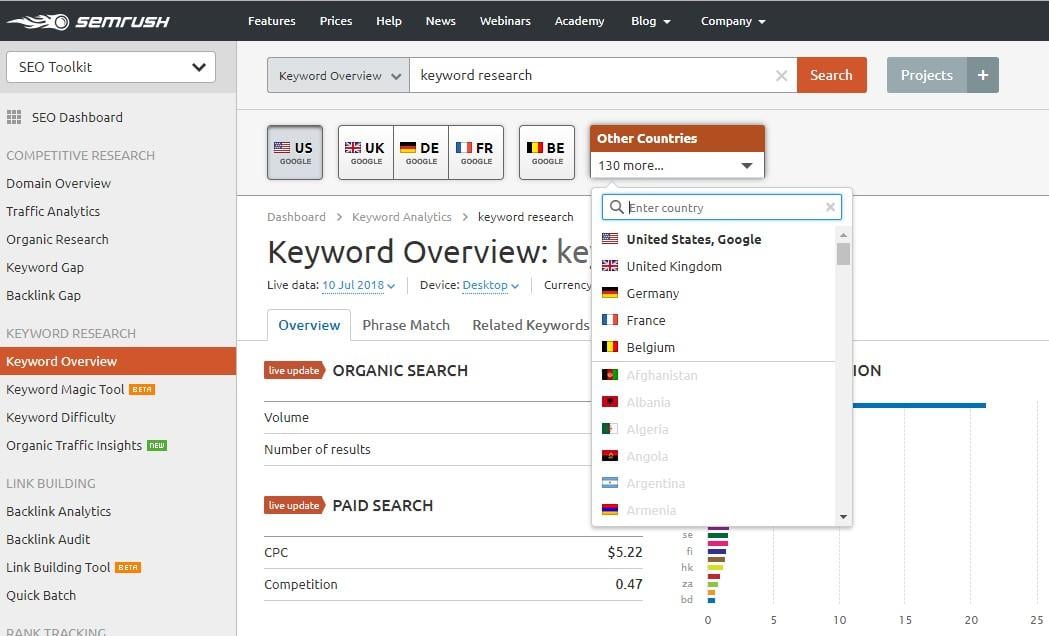Go Global with Confidence: International SEO Ideal Practices
Go Global with Confidence: International SEO Ideal Practices
Blog Article
Navigating the Digital Landscape: Leveraging International Search Engine Optimization for Cross-Border Success
In today's interconnected electronic globe, services are increasingly looking beyond borders to take advantage of global markets. Leveraging seo (SEARCH ENGINE OPTIMIZATION) strategies tailored for global audiences is vital for achieving cross-border success. The intricacy of navigating the digital landscape on a worldwide range requires a nuanced technique, from understanding the basics of International SEO to executing geotargeting and multilingual keyword phrase techniques. As business strive to broaden their reach and exposure across different regions, enhancing site frameworks and keeping track of cross-border performance come to be indispensable elements of a successful global SEO method.
Recognizing International SEO Basics
Navigating the ins and outs of international search engine optimization needs a solid grasp of essential concepts to properly increase on the internet exposure throughout borders. One critical aspect of worldwide search engine optimization is recognizing the significance of localization. This entails tailoring site web content to suit the linguistic, social, and commercial differences of target markets. Keyword phrases should be not only equated however also adjusted to reflect how customers in different areas look for information.
In addition, having a clear understanding of geo-targeting is important. This involves indicating to internet search engine the specific countries or areas a web site is targeting. Implementing hreflang tags is one way to communicate this details, making certain that the proper variation of a web page appears in the search results page for a customer in a particular area.
Additionally, understanding the impact of regional internet search engine and social networks platforms is important for international search engine optimization success. While Google is leading in lots of areas, nations like China have their own search engines like Baidu, requiring tailored approaches for each system to maximize on the internet exposure (International SEO).

Targeting Multilingual Keyword Techniques
Developing multilingual key words methods is important for successfully reaching diverse worldwide audiences and making best use of on the internet exposure across different linguistic areas. When targeting multilingual keyword strategies, it is important to conduct comprehensive research study to recognize the particular search terms and expressions utilized by the target audience in each etymological region. This involves not just equating keyword phrases but also thinking about cultural subtleties, regional dialects, and search fads unique to each target market.
To develop a successful multilingual key words technique, it is necessary to prioritize significance and search intent. Search phrases should align with the material on the web site and resonate with the social context of the target audience. Making use of devices such as Google Keyword Phrase Organizer, SEMrush, or Ahrefs can assist determine high-performing keywords in different languages and analyze their search volume and competitors degree.
Moreover, monitoring and evaluating the performance of multilingual search phrases consistently is vital for enhancing and improving the approach gradually. By continuously adjusting to adjustments in search actions and trends, services can enhance their online exposure and attract more international traffic to their internet sites.
Implementing Geotargeting and Hreflang Tags
When aiming to boost international search engine optimization approaches, check out here incorporating geotargeting and hreflang tags is essential for maximizing internet site visibility across various regions. Geotargeting entails tailoring material to certain places, guaranteeing that customers in different locations get appropriate details. By executing geotargeting, services can boost their local search positions and bring in region-specific website traffic.

Optimizing Site Framework for Global Exposure
To further enhance worldwide SEO strategies past geotargeting and hreflang tags, enhancing the site framework is vital for achieving international presence and optimizing reach across various areas. A well-structured web site not just boosts customer experience yet likewise promotes search engine spiders in comprehending the material and context of the site.
Furthermore, creating language-specific subdirectories or subdomains can aid search engines deliver the best version of the website to customers based upon their language choices, even more improving the total individual experience. Furthermore, maximizing URL structures to consist of relevant keywords and geotargeted terms can boost the site's presence in various areas. By structuring the site effectively for global audiences, companies can enhance their opportunities of bring in global website traffic and expanding their reach across borders.

Tracking and Evaluating Cross-Border Performance
Reliable monitoring and studying of cross-border performance is important for assessing the success of global SEO strategies and recognizing chances for enhancement in global reach and visibility. By closely tracking crucial efficiency indications (KPIs) throughout different markets, services can obtain important understandings right into the performance of their cross-border SEO efforts. Checking metrics such as natural traffic, keyword positions, conversion rates, and bounce prices can supply a detailed view of just see how well an internet site is carrying out in different areas.
Assessing cross-border efficiency data enables services to determine fads, patterns, and locations for optimization. By comparing performance across various nations, regions, or languages, business can pinpoint effective techniques and localize content to find out much better satisfy details target audiences. Additionally, checking cross-border efficiency enables services to remain nimble and receptive in the ever-evolving digital landscape. Regular analysis of search engine optimization performance on a global scale ensures that companies can adjust their strategies quickly to take advantage of arising possibilities and preserve an one-upmanship in global markets.
Verdict
Finally, global SEO plays a vital duty in achieving cross-border success by enhancing internet sites for international presence, targeting multilingual key phrase techniques, executing geotargeting and hreflang tags, and monitoring cross-border performance. By recognizing the principles of worldwide search engine optimization and maximizing internet site structures appropriately, businesses can effectively reach and engage with their target market throughout different regions and languages. This calculated approach is crucial for broadening market reach and driving on the internet development in today's digital landscape.
Report this page